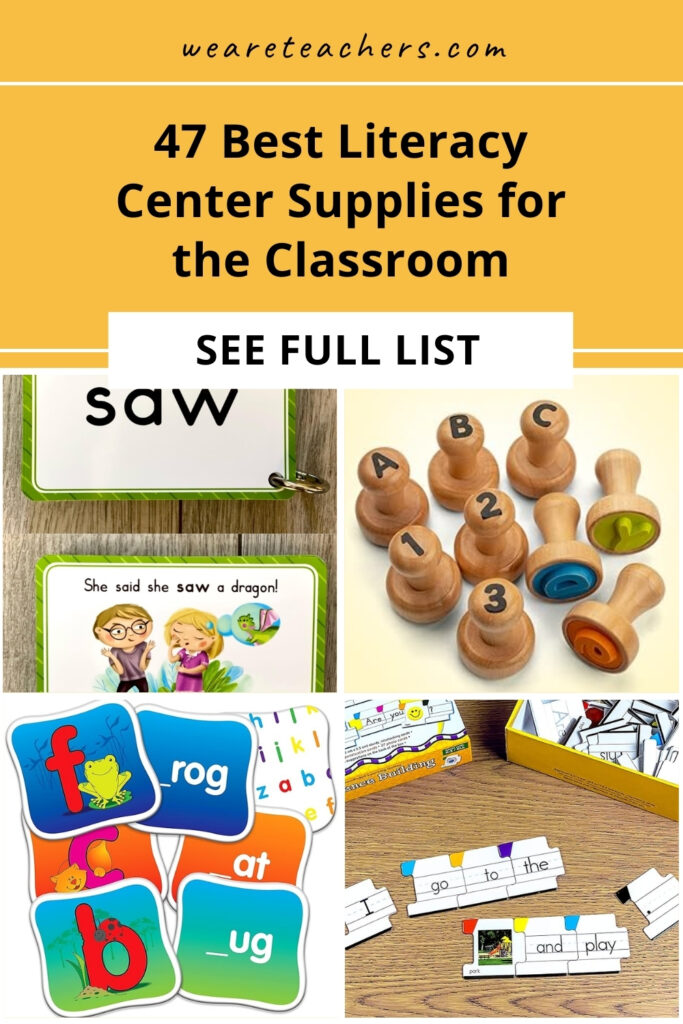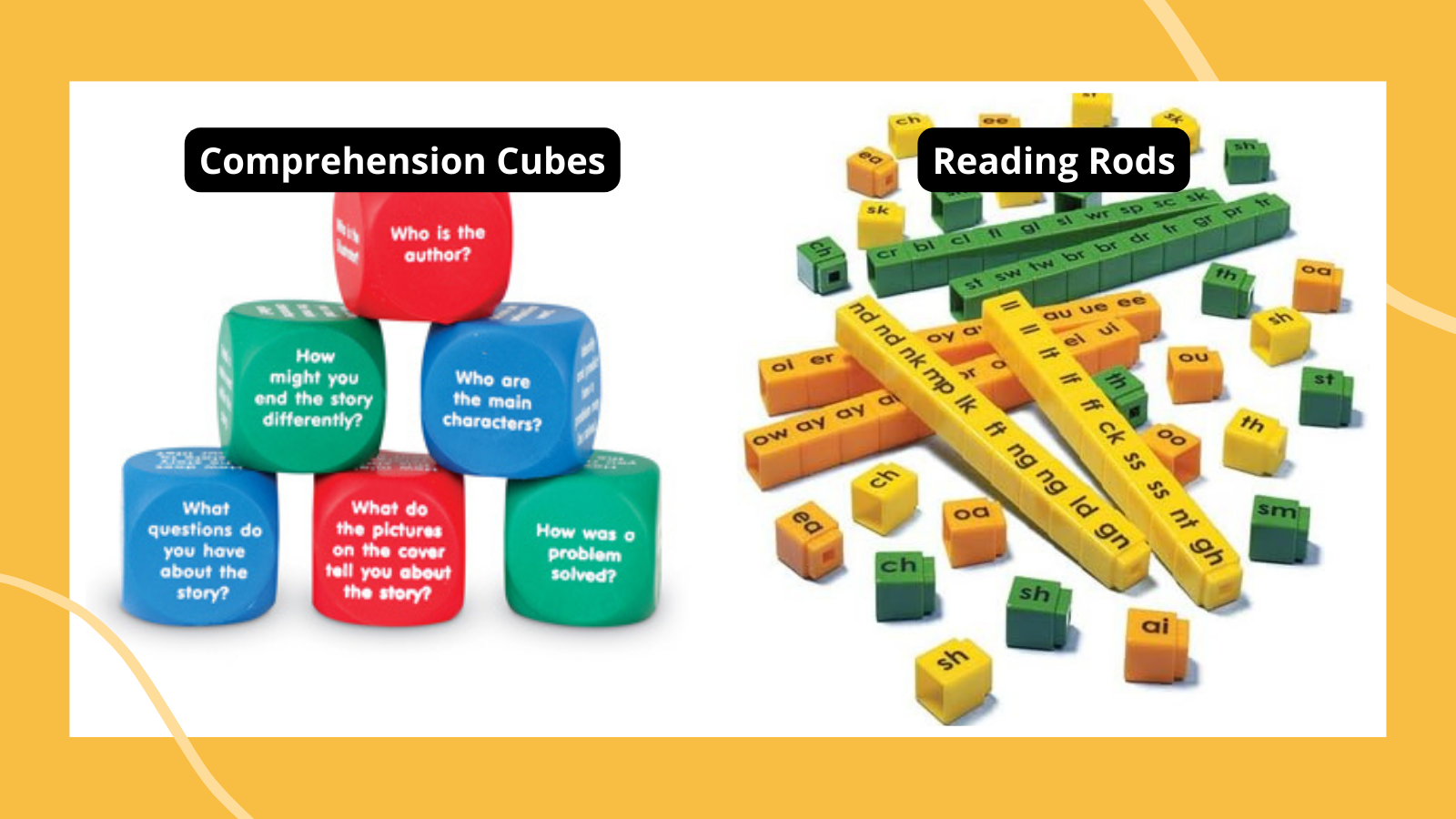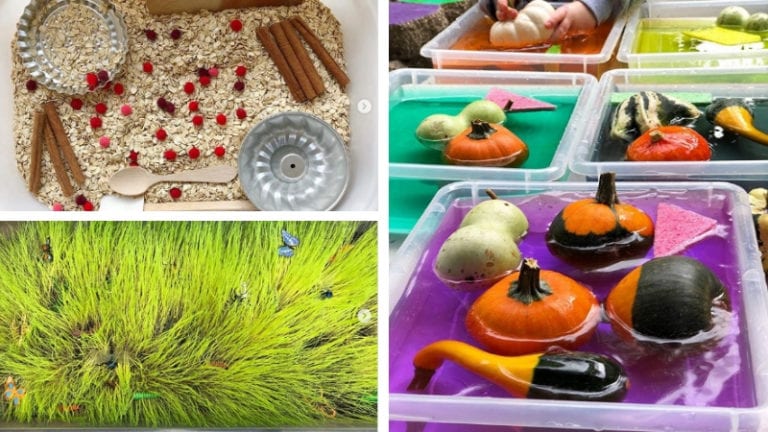Setting up classroom literacy centers in your elementary school classroom? These stations equipped with literacy center supplies are designed to provide materials to help your students work independently or in small groups of two or more in an effort to meet literacy goals. We’ve done the research and gathered a great list of literacy center supplies you can use to make your centers inviting and engaging for students.
Best Literary Center Supplies for Classrooms
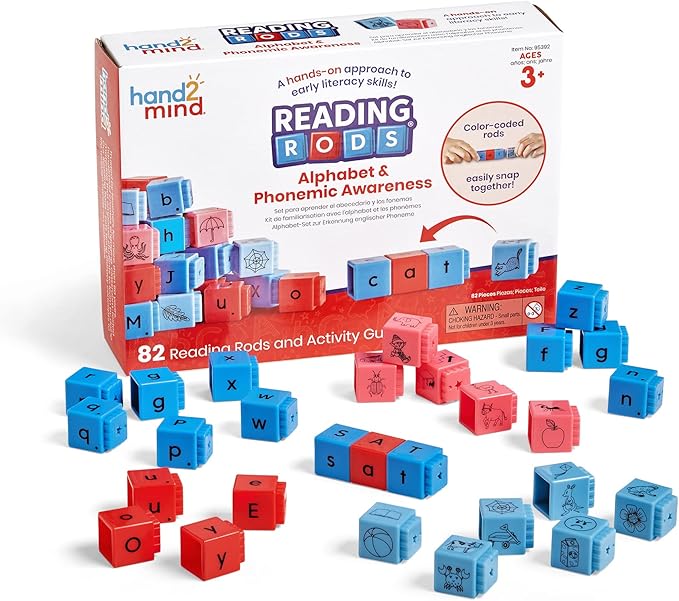
FEATURED PICK
1. hand2mind Reading Rods®
Prepare young learners for reading success with a color-coded visual and tactile experience! Reading Rods are scientifically based multisensory tools that allow children to practice, reinforce, and master essential literacy skills that prepare them for academic success.
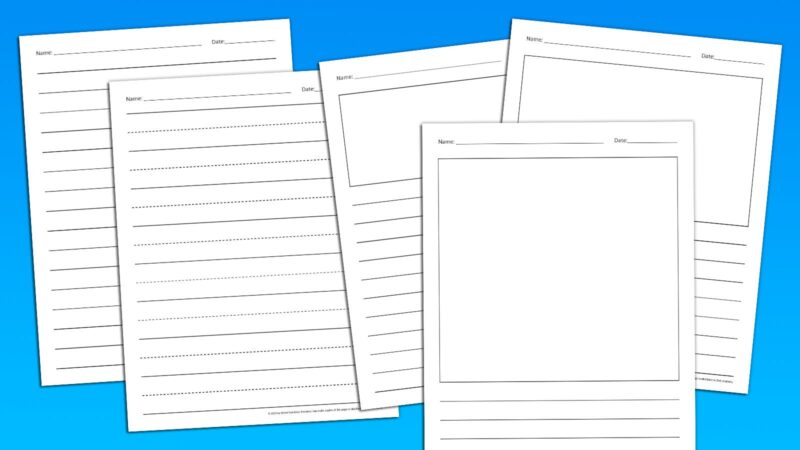
2. Writing paper
We all remember these, don’t we? They really do come in handy when encouraging students to practice their writing. The lines are effective guides for learning to write lowercase and uppercase letters. In the writing paper bundle, you’ll find templates to help students with narrative and nonfiction writing, all with guiding lines for handwriting.
Learn more: Elementary Writing Paper Bundle
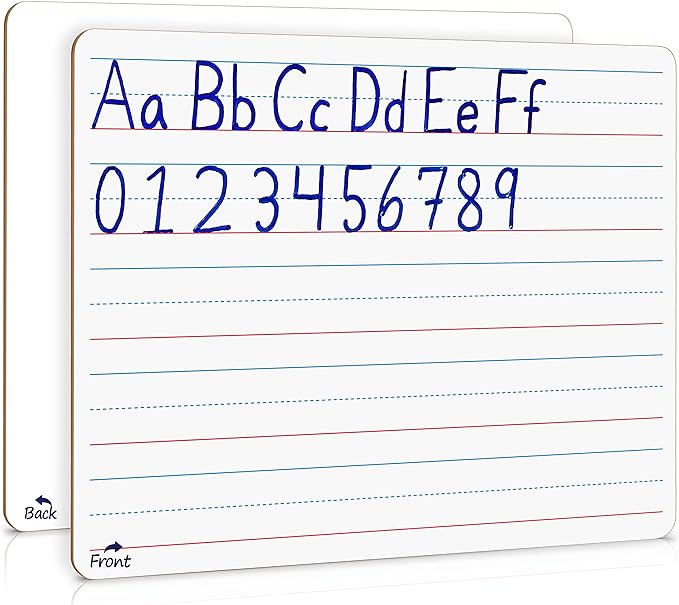
3. Dry-erase boards
Waste not, want not! If you’re looking for a more environmentally friendly (and cost-effective) alternative to traditional primary paper, these dry-erase whiteboards are perfect!
Buy it: Individual Dry-Erase Whiteboards and Whiteboard Markers
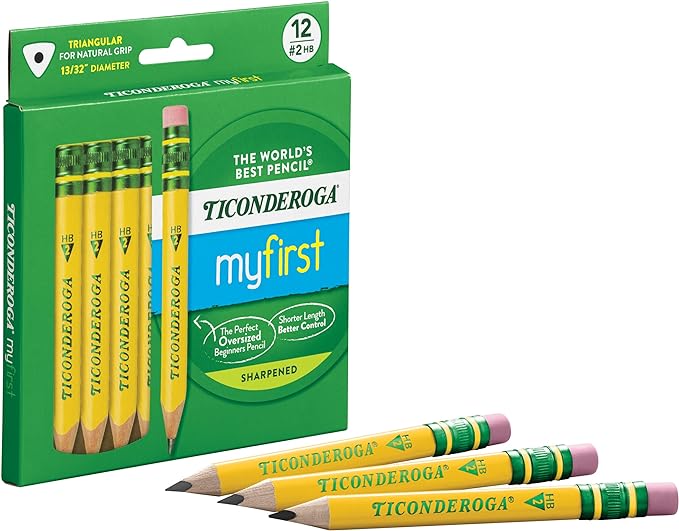
4. Triangular pencils
These fantastic triangular-shaped pencils are ergonomically designed to help little fingers have more control. They are an ideal choice for children who are in the earliest stages of developing writing skills and serve as great tools for literacy center supplies.
Buy it: Set of Triangular Pencils
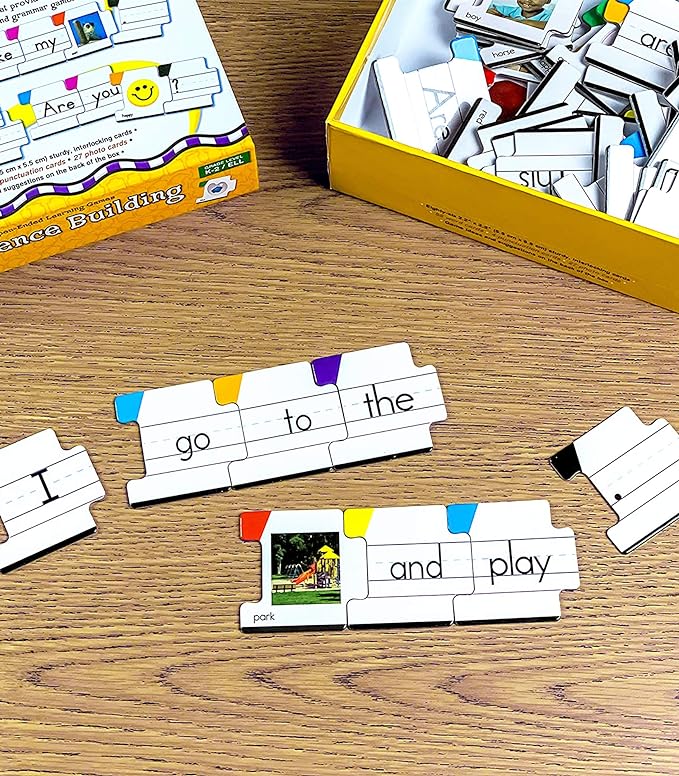
5. Sentence-building language cards
These language cards make it easy to tailor literacy activities to students of different learning levels. Color-coded and interlocking, this resource covers everything from capital letters to sentence building.
Teacher review: “Pick and choose puzzle pieces to work on specific sight words and phrases in reading and conversation. Real photos help students put sentences together more independently.” —Christine C.
Buy it: Sentence-Building Cards
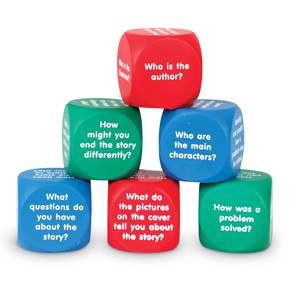
7. Reading Comprehension Cubes
Have students roll the dice and turn discussions about reading assignments into a game! This set includes six foam cubes in three different colors and an activity guide. It’s a great way to break students into small groups to spark conversations.
Teacher review: “The kids loved it—they couldn’t wait to play a game. Great questions and fun to use.” —Sheri S.
Buy it: Reading Comprehension Cubes
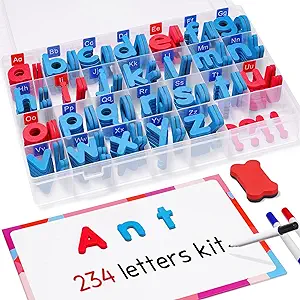
8. Magnetic letters
These fantastic sets to use for literacy center supplies come with a double-sided magnetic board, 182 lowercase letters, 52 uppercase letters, three whiteboard pens, and an eraser. Allow students to practice distinguishing and classifying letters and work on their spelling.
Teacher review: “As a primary teacher, I bought these to help students sound out CVC words at the beginning of the school year and my students loved them!” —Estela B.
Buy it: Magnetic Letters Kit
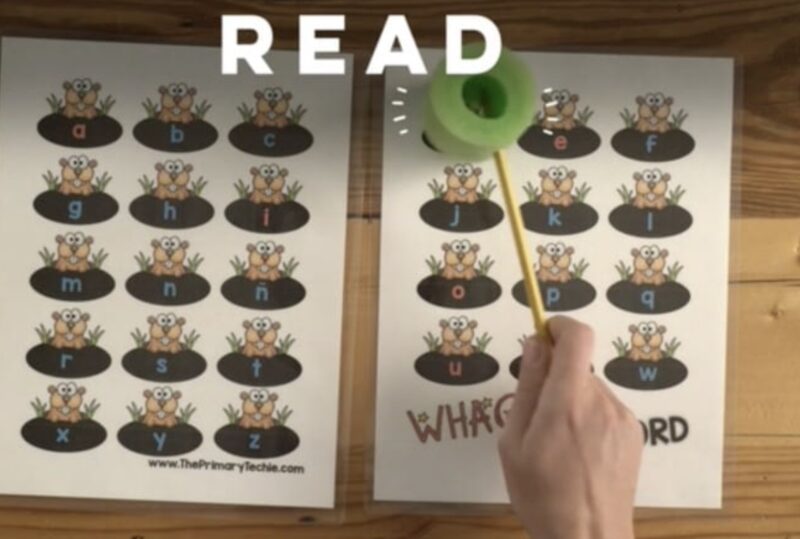
9. Whack-a-Word
Create your own Whack-a-Word spelling boards and have your students practice their spelling. We love how easy this is to create!
Learn more: Whack-a-Word Game
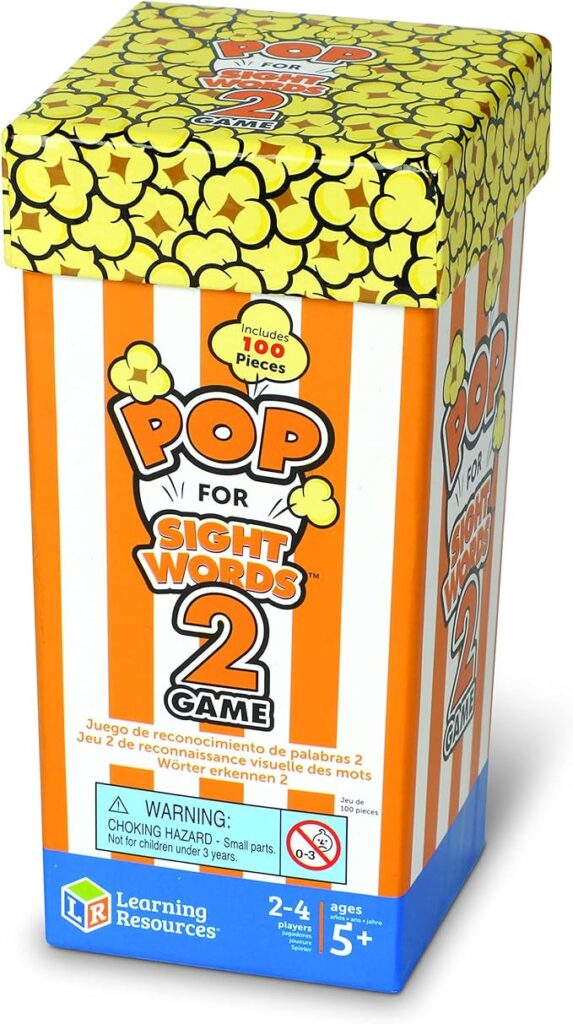
10. Pop for Sight Words
This cute activity will bring a little whimsy to your classroom literacy center. It includes 100 die-cut popcorn cards printed with 92 sight word cards, 8 Pop cards, and a guide. Students can learn game etiquette while practicing articulation, increasing vocabulary, and improving fluency.
Teacher review: “I have taught all of the grades in K-8 and I’ve had a use for this game every year.” —Emmer
Buy it: Pop for Sight Words
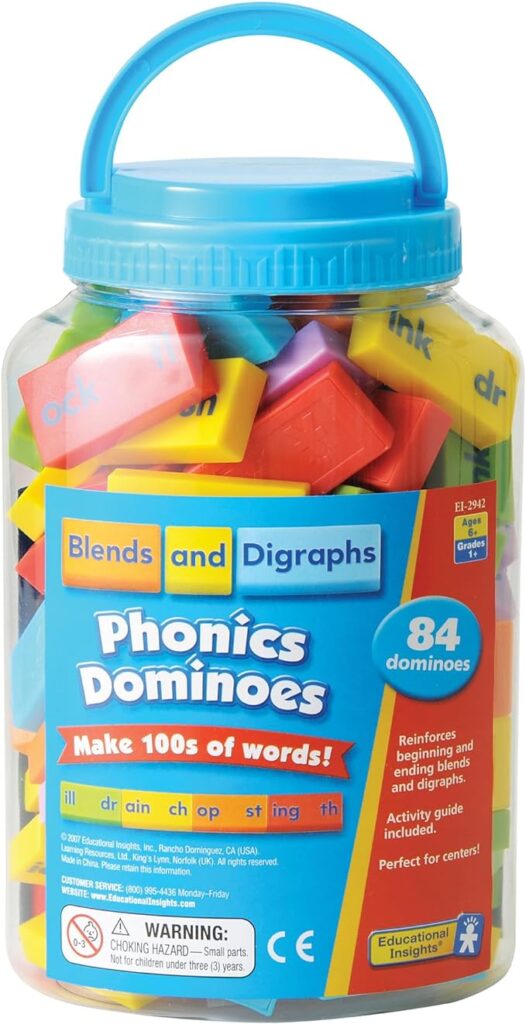
11. Phonics dominoes
Most kids love dominoes, and the tiles in this bright-colored set are printed with commonly used consonants and word families to make building words easy and fun. Play dominoes to make and read words as a main activity or a wrap-up game.
Teacher review: “I love the large variety of blends and digraphs! Tiles are nice colors. Also a great variety of word-endings.” —Ann G.
Buy it: Phonics Dominoes
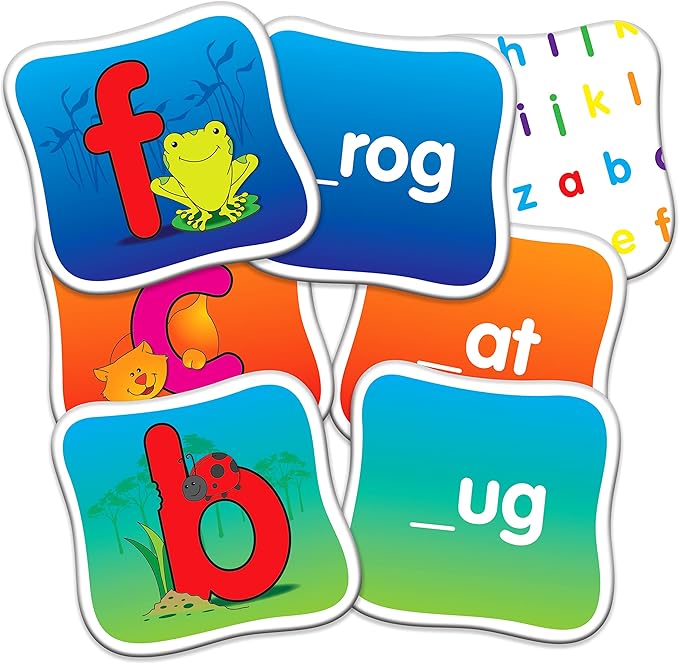
12. Spelling Memory
Help students boost spelling and memory skills with the Spelling Memory game. This activity is a good addition to your classroom literacy center as it promotes letter recognition, word formation, and vocabulary growth. Make this a social game by pairing kids up with a partner.
Teacher review: “Overall, this is a great learning tool. It’s fun and educational at the same time. The cards are very well made and will last a long time.” —tlc
Buy it: Match It! Spelling Memory game
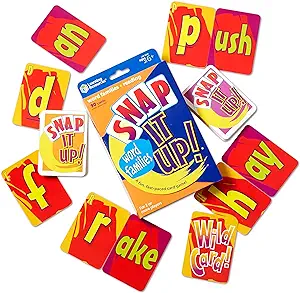
13. Snap It Up!
The fast-paced Snap It Up! card game engages students and builds reading and phonics skills. Encourage parents to buy a second set for home—it’s a fun activity for the whole family!
Teacher review: “My students and I love playing this game! It’s very engaging and the students beg to play it. It helps struggling readers love to read again!” —Hard Working Teacher
Buy it: Snap It Up! game
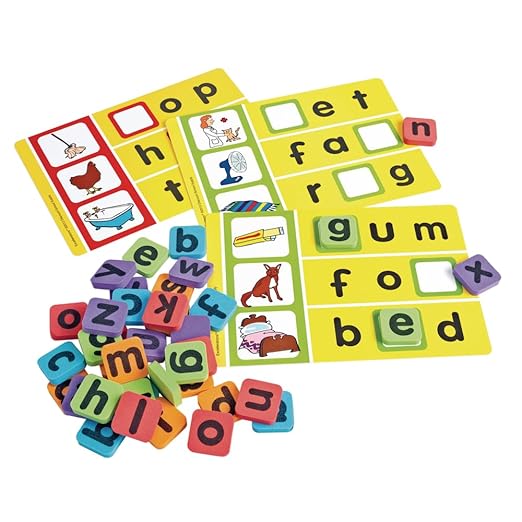
14. Phonics Spelling Game
The Phonics Spelling Game prompts young learners to find the missing letter of the words printed on the cards. Each set comes with 12 game boards, 40 foam letter tiles, and an activity guide.
Teacher review: “Students did great using the game and staying engaged and on task while I worked with other students in a small group.” —Kerrie P.
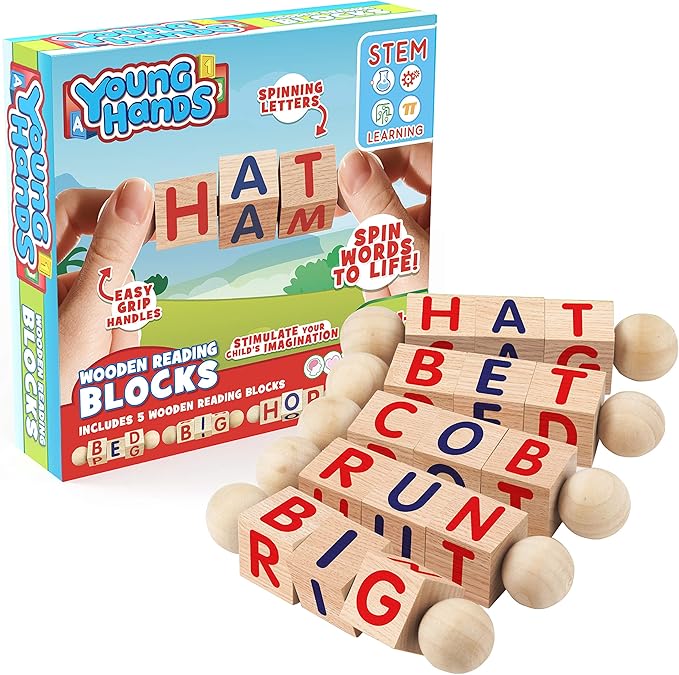
15. Wooden Reading Blocks
Spark imagination in your classroom literacy center with these rotating blocks that spin to form three-letter words. Each box comes with five reading blocks. Bonus: This activity is also helpful for strengthening fine motor skills.
Teacher review: “The use of the wooden reading blocks practice word families, develops eye and hand coordination, and best of all offers the ability to be used as an independent transitioning activity for those that finish early.” —Traci L.
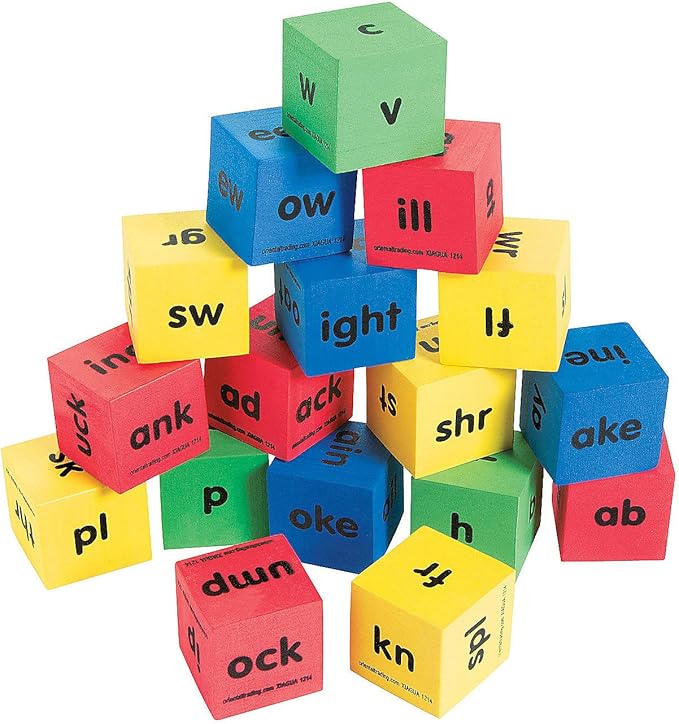
16. Word family dice
Who doesn’t love bright-colored foam dice? This set comes printed with letters, different combinations of letters, and short words that can be used for many engaging activities in your classroom literacy center. Students can develop word building, decoding, and spelling skills.
Teacher review: “Bought for small-group center use in my SPED classroom! Love them and great quality.” —Alexandra B.
Buy it: Fun Express Word Family Dice
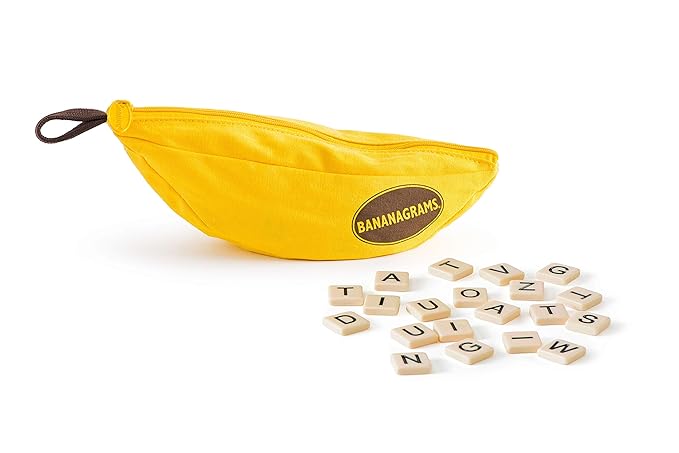
17. Bananagrams
This is a classic spelling game that, once they learn it, students can play when they’re early finishers. Use these literacy center supplies to reinforce spelling and automaticity in literacy centers.
Buy it: Bananagrams game

18. Spelligator
There’s so much to love about this literacy tool. The name is funny, it’s bright and colorful, and kids will work on word building while learning spelling rules and sounding out words. Note: This game gets a little noisy!
Teacher review: “I used this with my English learner students and others who needed reinforcement of skills.” —Keith P.
Buy it: Spelligator game
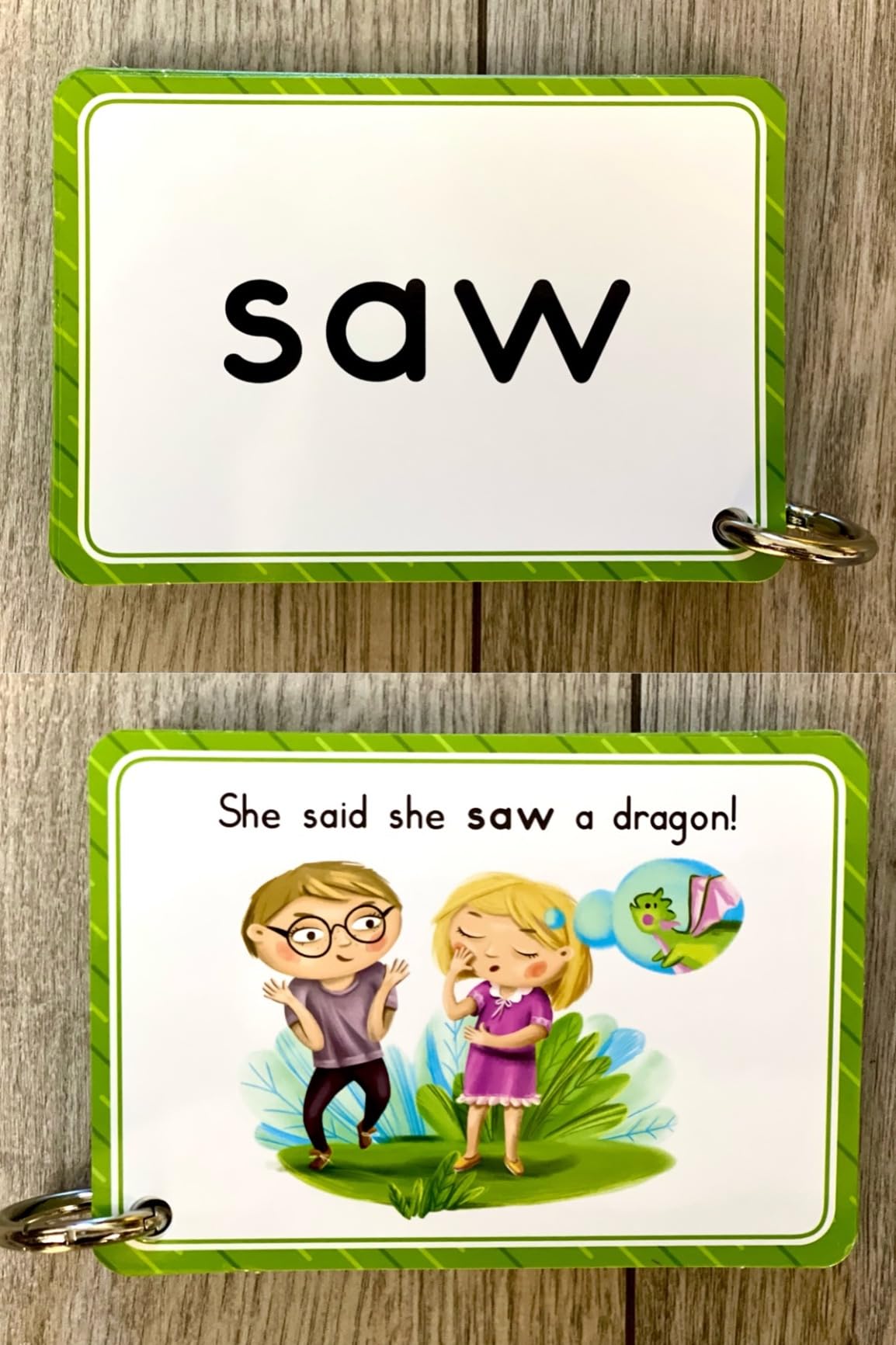
19. Flash Cards
Flash cards are a must for literacy center supplies. Sometimes they’re just what you need for warm-up or review. These flash cards are sturdy and have example sentences on the back.
Teacher review: “The cards are coated in a plastic material, which excited me because that meant I could use a dry-erase marker on them. I tested it out and it does easily wipe off. Yay!” —A. Rochelle
Buy it: Sight Words Flash Cards set

20. Zingo!
Zingo teaches sight words in an interactive bingo-style game. Students can play with you or in small groups.
Buy it: Zingo game
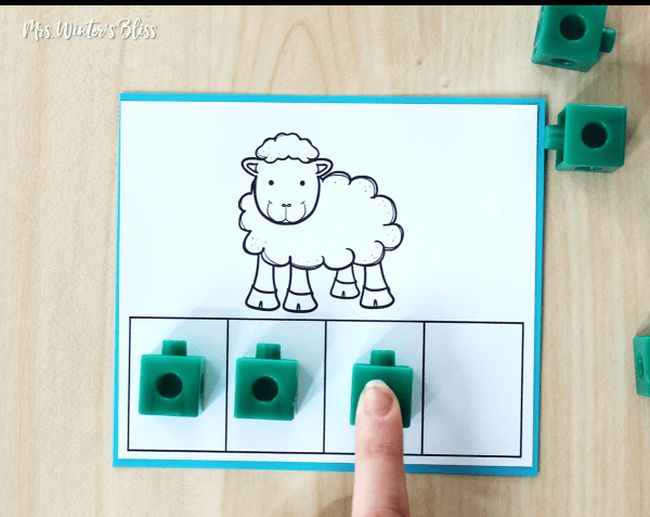
21. Elkonin boxes
Elkonin boxes are a tool for students who are learning how to break words into sounds. Each box represents one sound. Use these printable boxes to reinforce phonemic awareness as students move from CVC words to long vowel blends and more.
Get it: Free Printable Elkonin Boxes
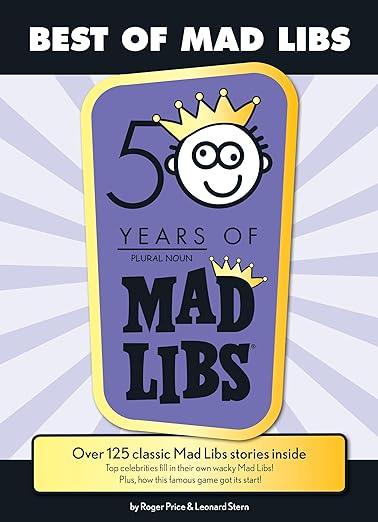
22. Mad Libs
Who doesn’t love a simple game of Mad Libs? Fast and fun, these activities teach parts of speech and will have students thinking beyond traditional words to make their story even more enticing.
Teacher review: “Stories turn out hysterical! Children and adults learn parts of speech while not even realizing they’re learning.” —Kate B.
Buy it: Best of Mad Libs
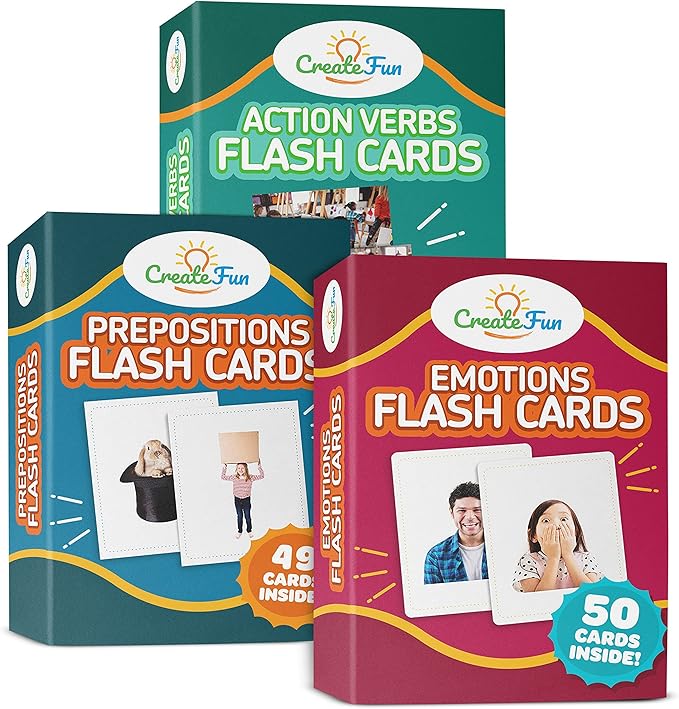
23. Preposition, action, and emotion flash cards
These flash cards have pictures to show action words, emotions, and prepositions so you can use them to extend students’ vocabulary before or after reading, or with students who are English language learners.
Buy it: Flash card set
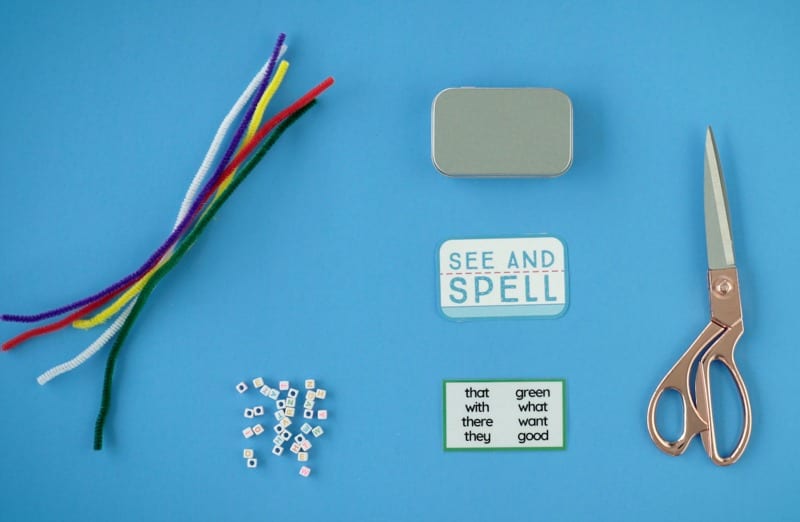
24. See and spell
Reuse Altoid tins by creating spelling games. Put pipe cleaners and beads into a tin for students to use to create words that you’ve been working on. They can build words while you’re reading with another student or if they finish early.
Learn more: Ways To Use Altoid Tins in Classroom Centers
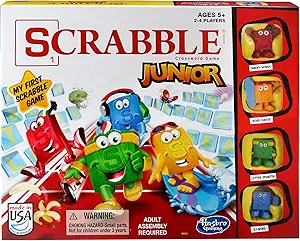
25. Scrabble Junior
Another spin on another classic spelling game! Scrabble Junior has two sides for beginner and advanced play. One side allows for matching of letters while the other side lets students build their own words.
Teacher review: “This game is wonderful for younger kids. It has 2 sides, one for just learning how to spell and the other for more advanced spelling.” —Laura
Buy it: Scrabble Junior
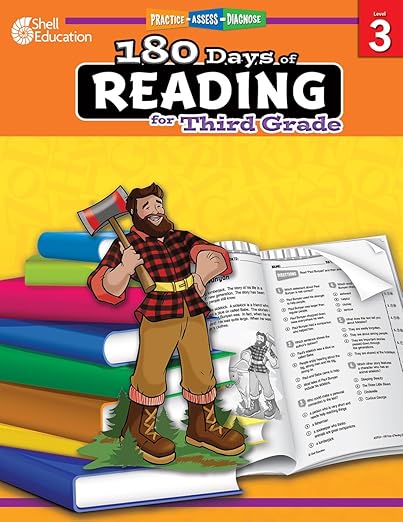
26. Workbooks
Not as fun as a game, but workbooks help with comprehension, reading, spelling, and more. Perfect for early finishers to go grab something to keep them occupied.
Teacher review: “I love the short passages with 6 questions. For students that are overwhelmed by long texts, this is the perfect way to teach them how to go back and underline the answers in text easily.” —John W.
Buy it: 180 Days of Reading workbook

27. Reading pointers
Think of these cool pointers as a literal extension of your arm as you direct students’ attention to things in a big book or across a whiteboard. They also come in handy for reaching up to words or posters you’ve taped high up on the wall!
Teacher review: “These pointers are geared towards the elementary learner. They are the perfect size for young hands and super easy to wipe with sanitizing wipes between students.” —Teresa
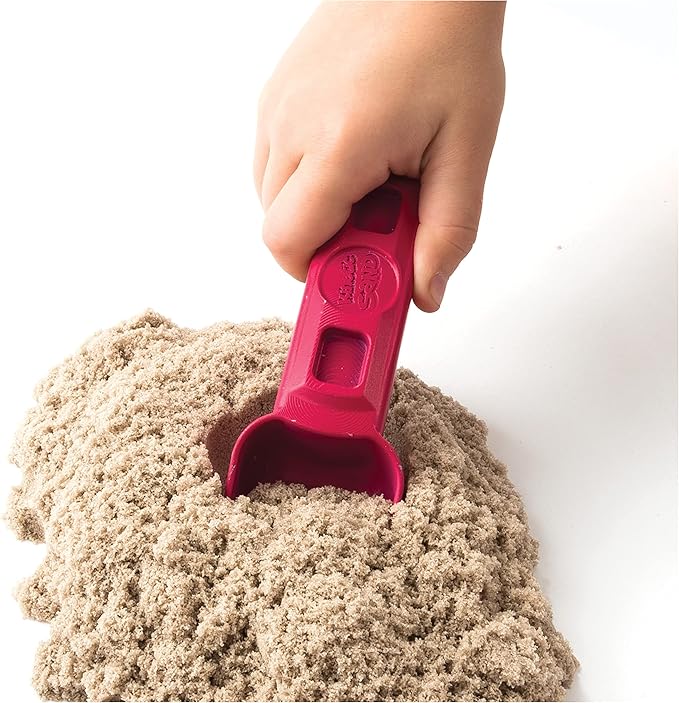
28. Kinetic sand
Kinetic sand is a really fun way to bring a sensory table to your classroom literacy center. Trace letters, or use letter stamps to promote recognition and spelling without making a huge mess—this sand literally sticks to itself!
Buy it: Kinetic sand and letter cookie cutters

29. Letter stamps
Letter stamps are a great way to have students spell words when their handwriting is a challenge or when they want another way to spell.
Teacher review: “These were very good quality and perfect size for little hands!” —Karen B.
Buy it: Letter stamps and stamp pads
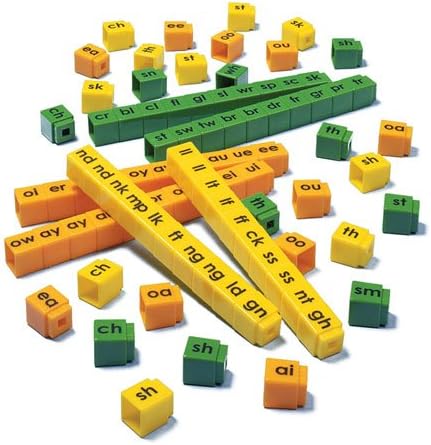
30. Letter cubes
Another way to build words with phonics patterns or sight words, letter cubes allow students to easily find and switch out letters to make new words.
Buy it: Set of letter cubes
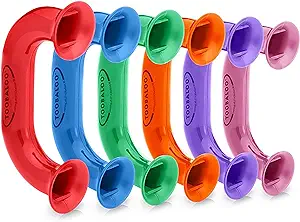
31. Toobaloo
There are many ways to develop literacy and language skills, which is why these feedback phones are so useful in classroom literacy centers. They can not only help improve reading fluency, but they can help students with pronunciation as well!
Teacher review: “My kids love it in the classroom and it really has helped them monitor their reading.” —Kasia

32. Desktop pocket chart
The perfect pocket chart for when you are working with a small group and want to use sentence strips or word cards.
Buy it: Desktop pocket chart

33. Sentence strips
Sentence strips are an excellent addition to your classroom literacy efforts. These handy tools can help your guided reading routine as students can use them to keep their place while practicing reading sentences. You can use them in small-group lessons with a pocket chart, or you can write individual words on them and have students combine words into sentences or sort words by family.
Teacher review: “I use these in my classroom and they are sturdy. Colors are bright. I definitely recommend.”
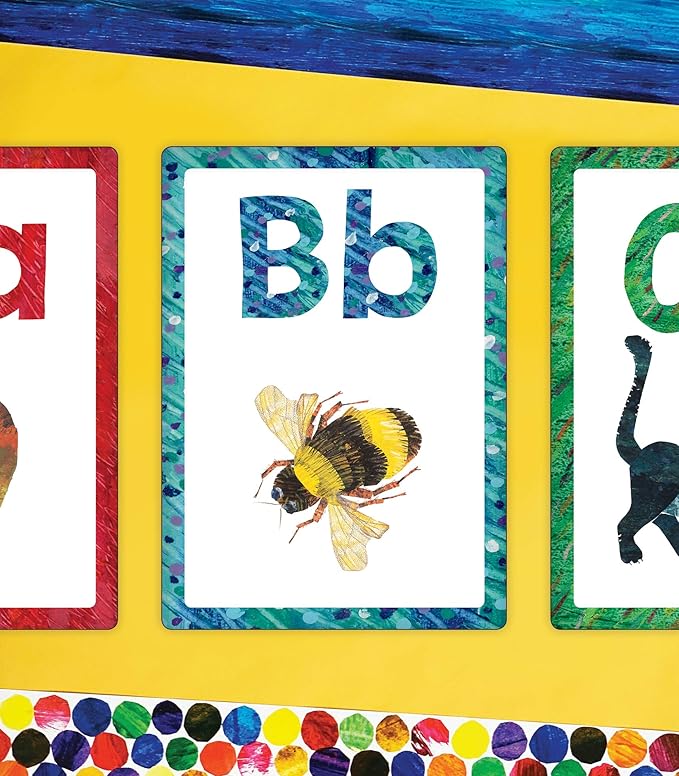
34. Bulletin board letters
Your wall space is prime real estate in the classroom, especially near the small-group table, so you want to choose what you hang wisely. These beautiful alphabet cards by World of Eric Carle provide a visual reference for young students to enhance their learning experience.
Buy it: World of Eric Carle 27-Piece Alphabet Bulletin Board Set
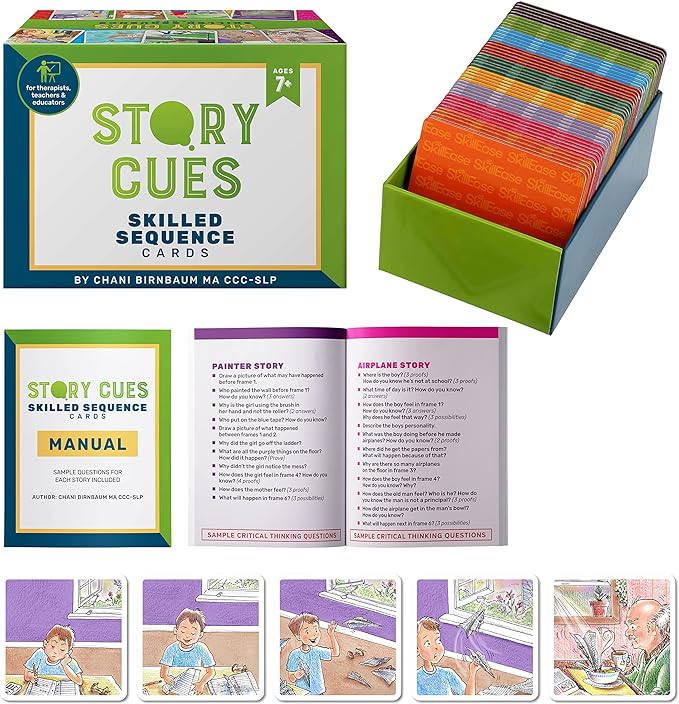
35. Sequence cards
Literacy is about more than recognizing letters and sounds—it’s also about understanding the meaning of text. These sequence cards are an excellent resource for classroom literacy centers as they help build social skills and emotional recognition.
Teacher review: “I’m a one-to-one special education teacher and am happy with purchase. The cards are very well made and the pictures create a lot of room for discussion.” —Irene Z.
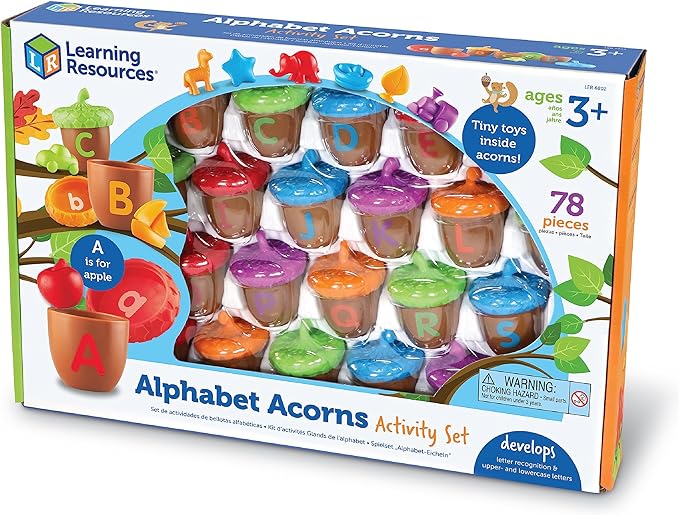
36. Alphabet Acorns
These little acorns are really wonderful for visual and tactile learners who are working on those early vocabulary skills. Additionally, they’ll get plenty of practice with learning the alphabet and color recognition.
Teacher review: “The tactile experience of holding and manipulating these acorns adds an extra layer of sensory engagement to the learning process.” —Olivia
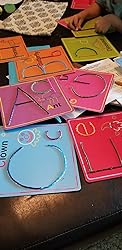
37. Wikki Stix Alphabet Cards
These alphabet cards include directional arrows that show students the proper stroke for letter formation, supplementing learning with a kinetic tool. Use with Wikki Stix, which are made from nontoxic food-grade wax and hand-knitting yarn.
Teacher review: “What I love about Wiki Stixs is they never dry out and can be used over and over again. The cards are easily bent but work fine and are easily straightened out.” —Molly
Buy it: Wikki Stix Alphabet Cards and Wikki Stix
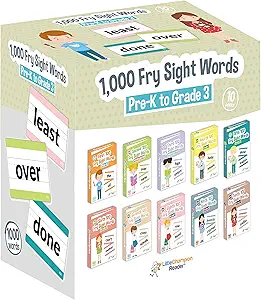
38. Sight word cards
Teacher review: “Really like the amount of words in this set. Like that you can see the word you are showing to the student/viewer without having to flip the card over because it is small on other side for you to read.” —Jaime
Buy it: 1,000 Fry Sight Words card set

39. Retell a Story Cubes
There’s just something fun about giant foam dice, isn’t there? Your kids will light up with these a Retell a Story cubes, designed to strengthen after-reading skills by boosting reading and listening comprehension.
Teacher review: “My students loved these! And I’m a high school teacher. It makes story discussions a lot less tedious and very interactive.” —Asher
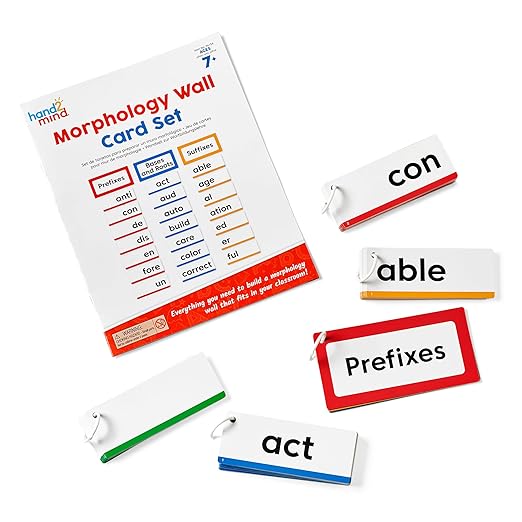
40. Morphology set
When students are learning prefixes, suffixes, and base words, a literacy center kit like this one comes in handy. Use these cards for pre-teaching and reteaching word parts.
Teacher review: “I like to use multimodal and metalinguistic methods to teach both first and second languages. This set is a great starting point for such methods.” —Tacha
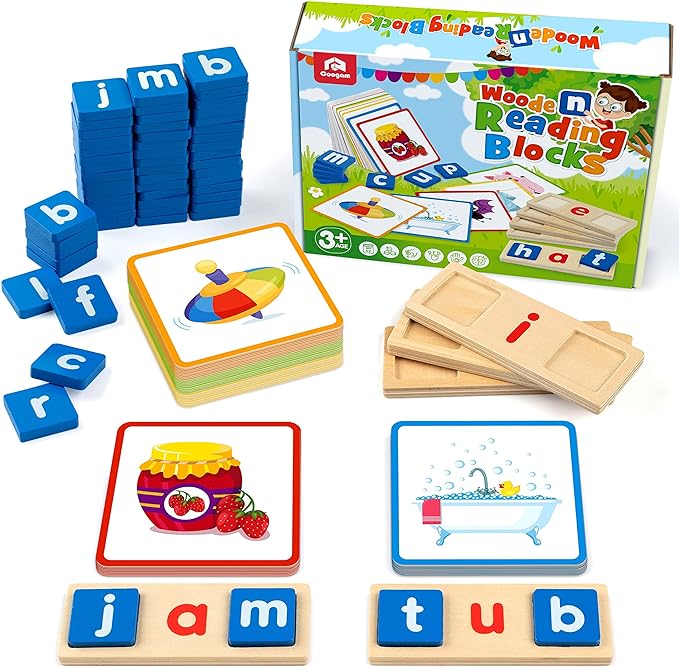
41. Wooden CVC word blocks
This CVC word set combines letters and images for students to practice phonemic awareness and blending. The images are clear and the cards and letters are sturdy, so you’ll get a lot of use out of this set.
Teacher review: “Simple, easy, fun way to teach CVC words. The pictures and self-check feature are nice. It’s small but perfect for little hands. The quality of the material is good.” —Ajay
Buy it: Coogam Wooden Reading Blocks set
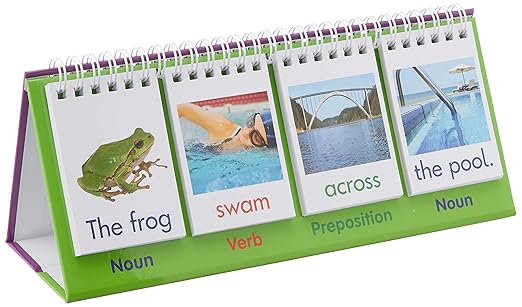
42. Sentence flip chart
A flip chart like this is great for teaching and reinforcing sentence structure. For English language learners, they’ll develop core language and you’ll know they’re making progress when they start laughing at the silly sentences they can make.
Buy it: Junior Learning Sentence Flips
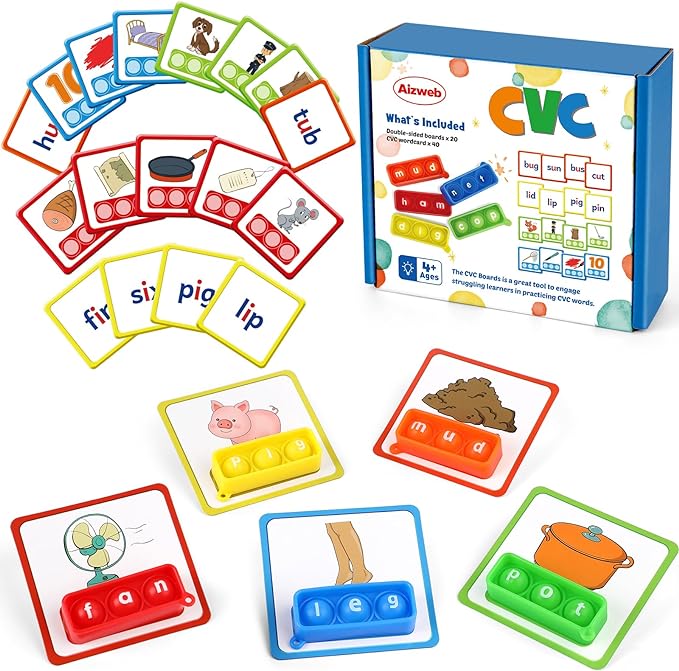
43. CVC Pop-It center
If you have students who need extra practice with CVC sounds and words, this center is a great one. It’s motivating (I mean, Pop-Its!), tactile to reinforce that each letter has one sound, and has lots of common words.
Teacher review: “This is a great resource for early childhood education! Its quality is great, engaging for children, easy to use, and super cute!” —Whitney F.
Buy it: CVC Word Game
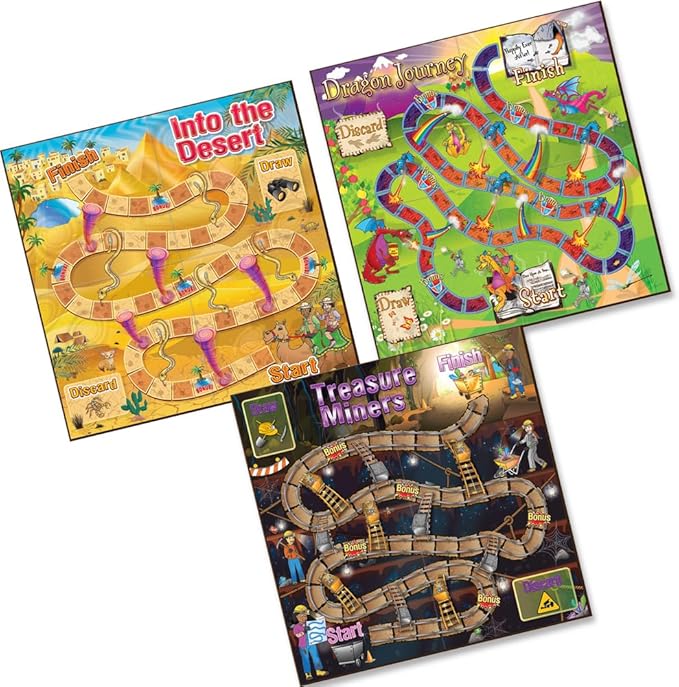
44. Comprehension board games
Board games are a great way to reinforce higher skills or review skills. In this case, these three board games teach cause and effect, problem and solution, and context clues.
Buy it: Comprehension Game Trio

45. Word lists and cards
As you’re moving through phonics patterns, download and print word lists and cards for CVC words, short ‘a’ words, short ‘e’ words, and more. Use the cards to practice reading and the list to find just the right word for students to read or write.
Learn more: Lists and cards for CVC words, short ‘a’ words, and short ‘e’ words
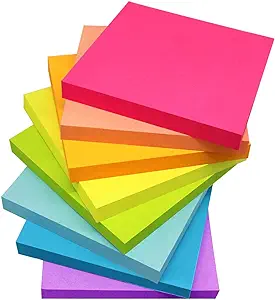
46. Sticky notes
Sticky notes are the most versatile literacy center supply. You can use them for students to write words on a quick exit ticket, record notes about what students can and can’t do, or place three sticky notes in front of a student for impromptu Elkonin boxes. The point is: You need these!
Buy it: Sticky notes
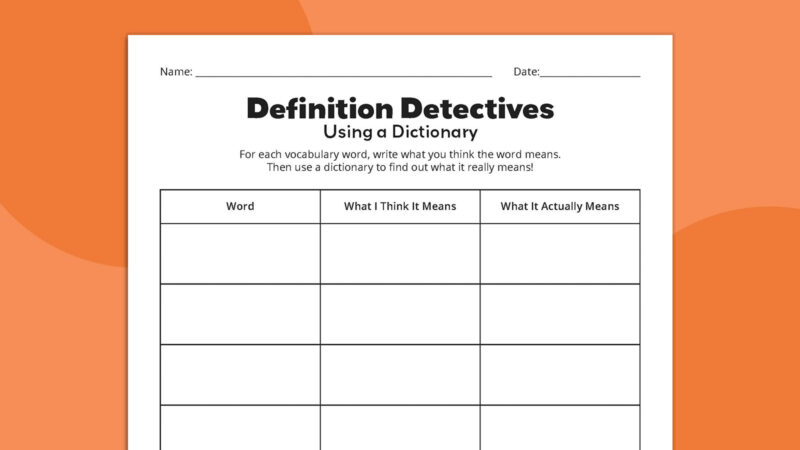
47. Vocabulary worksheets
Print these vocabulary practice sheets as easy literacy center supplies and have them on hand for when students are starting a new text and need to preview words, or when you need to teach academic vocabulary.
Learn more: Vocabulary Worksheets To Use With Any Word List
Now that you’ve got literacy center supplies, here are activities students can perform in your classroom literacy center.
What supplies do you put in your classroom literacy center? Come and share in our We Are Teachers HELPLINE group on Facebook.
